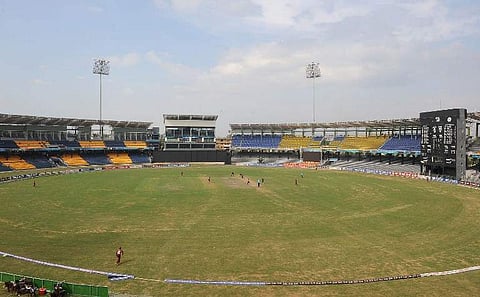

COLOMBO: Sri Lanka's sports minister was sacked Monday hours after he accused President Ranil Wickremesinghe of trying to assassinate him over his moves to clean up corruption at the cricket board.
Officials said Roshan Ranasinghe was dismissed ahead of Monday's weekly cabinet meeting after he told parliament that Wickremesinghe should be held responsible if he was killed.
"I fear I could be killed over my work to clean up the cricket board," Ranasinghe told parliament, escalating a confrontation with Wickremesinghe who had been at loggerheads with the minister over the running of Sri Lanka Cricket.
"If I am assassinated on the road, the president and his chief of staff will be responsible," Ranasinghe said.
There was no immediate reaction from Wickremesinghe except confirmation from his office that the minister was dismissed.
Ranasinghe sacked the elected cricket board earlier this month after accusing office-bearers of gross corruption, a charge they have denied and are challenging in court.
The cricket board is the richest sporting organization in the otherwise bankrupt island country.
The International Cricket Council suspended Sri Lanka Cricket (SLC) earlier this month, saying it had failed to ensure there was no government interference in its affairs, violating the world body's rules.
Ranasinghe has refused the president's calls to revoke the sacking of the board.
The parliament backed the sports minister by passing a non-binding resolution three weeks ago asking the cricket board to resign pending a forensic audit of its accounts.
Wickremesinghe has appointed a committee to investigate the ICC suspension.
The cash-strapped country defaulted on its $46 billion debt in April last year after running out of foreign exchange to finance imports of even the most essential commodities, making life a misery for the island's 22 million people.
At the peak of last year's crisis, months of civil unrest forced the ouster of then-president Gotabaya Rajapaksa when protesters stormed his residence.